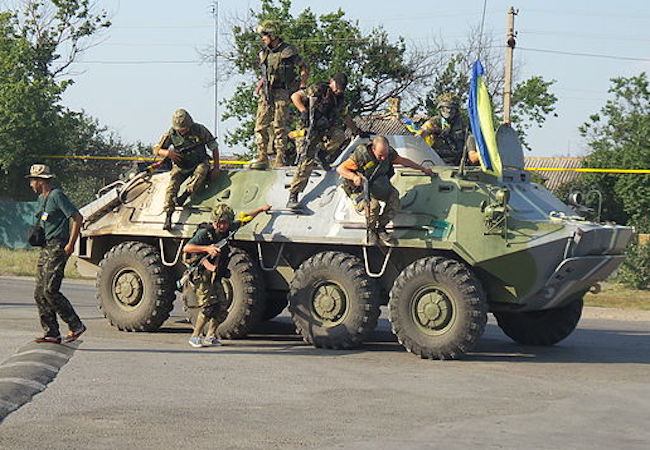Could Russia legally use nuclear weapons in response to a U.S. intervention in Ukraine?

By Anthony J. Colangelo
There is an ominous new development in the potential Russian invasion of the Ukraine and the U.S. response. According to the New York Times, “nuclear weapons could be shifted to places — perhaps not far from the United States coastline — that would reduce warning times after a launch to as little as five minutes, potentially igniting a confrontation with echoes of the 1962 Cuban Missile Crisis.”
This is in keeping with Russian President Vladimir Putin’s desire to expand Russia’s sphere of influence to Eastern Europe and commitments that NATO will not enlarge. Some of Putin’s aides suggested last week that should he fail to achieve these objectives, he would pursue Russia’s security interests with results that would be felt in Europe and the United States, including the placement of nuclear weapons near the United States coast close enough to reach the capital.
The use of nuclear weapons by Russia would be blatantly illegal. In an article “The Duty to Disobey Illegal Nuclear Strike Orders” in the Harvard National Security Journal I laid out the illegality of using nuclear weapons as dramatically disproportionate due to their quantitatively and qualitatively different features of such weapons as compared with conventional weapons, resulting in a severe violation of the law of war, or humanitarian law. As far as has been reported, the United States has no intention of using such weapons capabilities.
Nuclear weapons are unique: quantitatively, the blast power, heat, and energy generated far outstrip that of conventional weapons, likely rendering nuclear weapons indiscriminate. Second, qualitatively, the radiation released is so powerful that it damages DNA and causes death and severe health defects throughout the entire lives of survivors as well as their children. Third, nuclear weapons make virtually impossible humanitarian assistance to survivors at the blast scene struggling to survive, leading to more suffering and death. Fourth, damage to the environment may produce not only devastating environmental harm itself but also widespread famine and starvation. Fifth, nuclear weapons cause long-lasting multi-generational psychological injury to survivors of the blast.
All of these features make the use of nuclear weapons where conventional weapons could achieve the same objectives a war crime. Liability would run up and down the chain of command starting with Putin and running down to the crewmembers actually tasked with the launch, rendering them war criminals as well.
Readers may ask what the practical consequences of labeling a head of state a war criminal might be. This is not an academic question. Nations take these charges seriously, and they may (and have in the past) resulted in serious sanctions by the international community. Putin himself would be liable and subject to prosecution once his immunity lapses as head of state, as would the chain of command including, again, low-level crewmembers creating a strong deterrent.
So, to return to the original question, should Putin deploy nuclear weapons in response to a U.S. intervention, he would be a war criminal subject to prosecution, as well as anyone involved in that decision. It is hoped that such a consequence would act as some form of deterrent to that catastrophic decision.
Anthony Colangelo is the Robert G. Storey Distinguished Faculty Fellow and Professor of Law at Southern Methodist University Dedman School of Law




